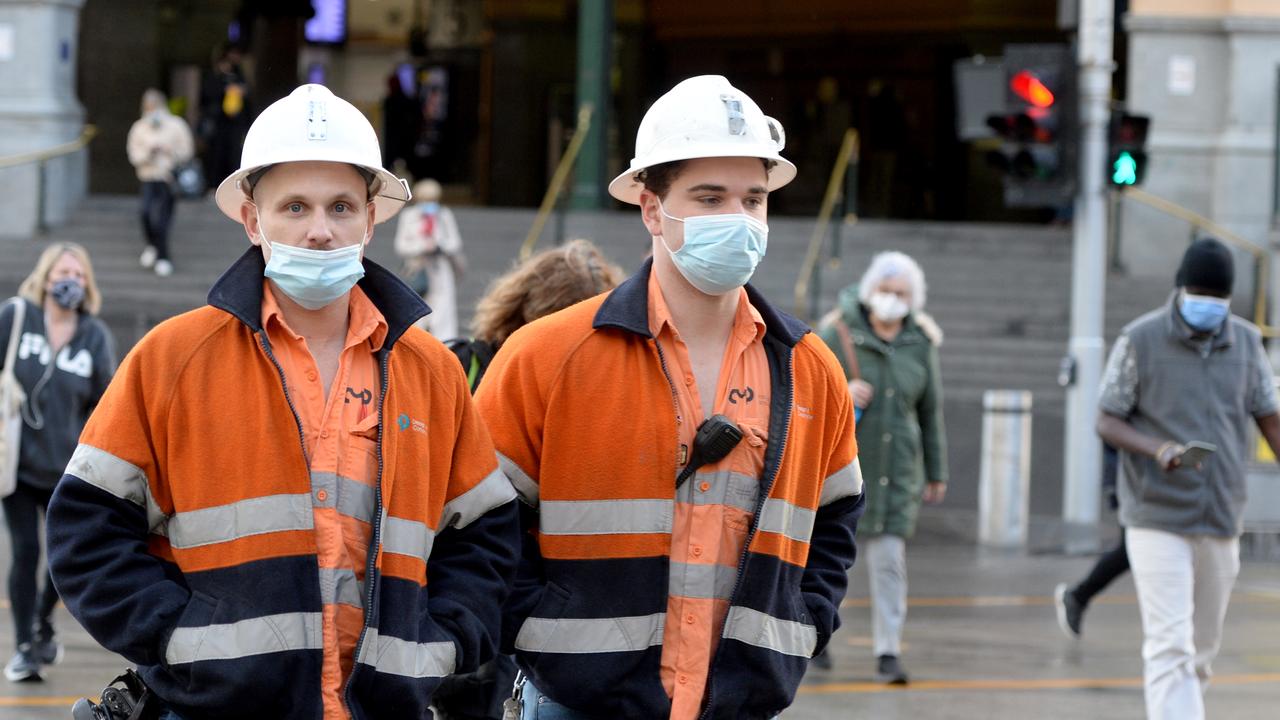The Great Resignation could force up wages in Australia as workers say they want more money
A phenomenon dubbed the Great Resignation is about to hit Australia, and despite the scary name, it could actually force wages to increase.
Australia could be on the verge of a phenomenon dubbed The Great Resignation, and one expert believes the mass exodus of staff could push wages higher and even force an increase in interest rates.
Record numbers of people have been changing jobs in the United States and the post-pandemic trend looks set to hit Australia next.
A rising number of Aussies are at least thinking about quitting their jobs.
The latest results of a Digital Finance Analytics survey of 52,000 households covering September show about a quarter of people have considered moving on.
“The intention to at least consider it is up by at least 10 per cent (compared to the same time last year),” Principal Martin North told news.com.au.
Interestingly, the reasons people give for wanting to quit have changed significantly, with most people now motivated by wanting a pay rise.
In September last year about two-thirds of those who wanted to quit were being driven by lifestyle factors, such as not wanting to commute, or wanting a better work/life balance, Mr North said. Only about one-third were motivated by money.
This has now switched, with about two-thirds now wanting a pay rise and only one-third wanting a better lifestyle.
“More people are now thinking more seriously about switching jobs if they can increase their income,” Mr North said.
“I think it’s a reflection of the rising cost of living and bigger mortgages, and some of the other uncertainties experienced in recent times.”

Mr North said people’s attitudes shifted about three months ago.
“It was effectively in about June/July that we started to see this swing — whether it’s correlated with tighter lockdowns over that period, I don’t know,” he said.
Some analysts believe many Aussies will be looking to move on in March next year, once people have got their Christmas bonuses and recruiting starts to gear up again.
Mr North said there were differences in sentiment depending on industry, age and location but if the trend did play out and a large amount of Aussies left their jobs for better paying positions, this could have broader implications for wage rises and interest rates.
Mr North said wages could begin to rise if employers started to be more proactive about developing strategies to stop their best staff from leaving by offering payrises or other incentives, rather than waiting until someone threatens to leave.
“Typically it costs a lot to replace staff, there is the cost to rehire but there is also the disruption as it’s particularly hard now to get staff, so this puts pressure on a business,” he said.
Widespread wage increases could then drive up inflation.

While the Reserve Bank has said it does not expect to increase interest rates until 2024, if inflation does get too high, it may be forced to act sooner.
“This churn of people and negotiation of higher wages could well be the trigger for higher interest rates ahead,” Mr North said.
“The fact is, a lot of people have had no real pay rise other than cost of living increases since 2011,” he said.
“The salary growth in Australia has been disgusting — other than in industries like the high tech industries.
“The financial stress is very high at the moment, the cost of living is rising and mortgages are rising, but we’ve had very little income growth.”
However, Mr North said his observation of employers in Australia was that they generally didn’t give pre-emptive payrises even if this was generally better for their businesses, so it’s unclear whether this scenario will play out.
He also noted that casual employees and others without the safety of full-time permanent contracts would be in a much weaker position to negotiate wage increases.
Mr North said if people wanted higher wages, they would probably need to be proactive and go elsewhere or negotiate with their existing employer.
“What I find amazing is that the average mortgage has grown by around $80,000 in the last year,” he said.
More Coverage
“People are way more committed (financially) than previously and it’s obviously having a destabilising effect on people’s household finances in my view.”
Back in the early 2000s people enjoyed good income growth to help pay off their mortgages but Mr North said this was not happening now.
“Once interest rates rise, as they are likely to do, this could be a very significant drag on the economy as well as on individual households.”





